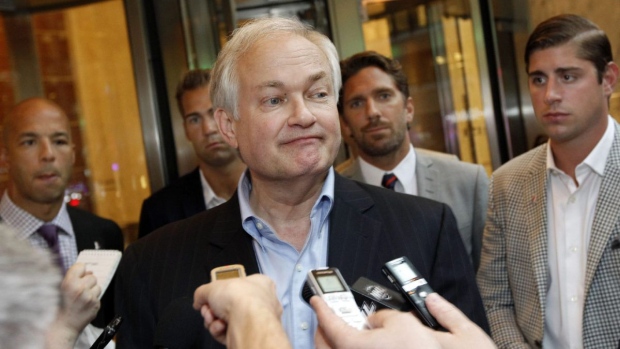Dec 23, 2020
Fehr 'optimistic' about Canadian teams playing in home arenas
The NHL released its schedule for the 2020-21 regular season on Wednesday, featuring a North Division with Canada's seven teams battling each other multiple times over the 56-game campaign. Donald Fehr, executive director of the NHL Players' Association, is "optimistic" they'll find a way to play in Canada.
TSN.ca Staff

The NHL released its schedule for the 2020-21 regular season on Wednesday, featuring a North Division with Canada's seven teams battling each other multiple times over the 56-game campaign.
However, questions remain whether Canadian teams will be allowed to play in their home arenas as approval is still needed from various health authorities in the provinces of British Columbia, Alberta, Manitoba, Ontario and Quebec.
Donald Fehr, executive director of the NHL Players' Association, is "optimistic" they'll find a way to play in Canada.
"At the moment, as I suspect you know, there have been a number of conversations and there was a call a few days ago. And we’re continuing to give them (provinces) information on things like schedules and so on. And I expect we’ll hear back from them before too long," Fehr told Pierre LeBrun of The Athletic. "I’m reasonably optimistic we’ll find a way through this.
"You know, these people (provincial health authorities) have a tough job. I certainly wish them the best in trying to do it. On the other hand, I think they recognize that in terms of an industry or something that’s going to be open, we’re about as safe as they get. And we have a good track record with the protocols in terms of making sure we’re not a danger to anybody else. So I’m keeping my fingers crossed, but I’m reasonably hopeful."
According to TSN Hockey Insider Darren Dreger, provincial reps met on Monday and again Wednesday morning and are expected to respond to the league and NHLPA as a group, which is viewed as encouraging by some clubs.
TSN Senior Hockey Reporter Frank Seravalli previously reported last week that if all parties are unable to sort out the details, the options for the seven teams include an Edmonton hub city bubble or moving to the United States for the season.
Additionally, Fehr said it was important to stick with the details of the memo of understanding (CBA extension) negotiated prior to the restart in the summer during talks and preparations for the upcoming season.
"Well, I think it’s pretty simple. We negotiated an agreement last summer. It was not at all easy to do. It was something unique in my experience. Players didn’t like parts of it. Owners didn’t either. But we got it done," explained Fehr. "Given that, the basic feeling of the guys was that we ought to stick to this agreement absent some overly compelling reason not to do so. And that’s where we ended up. Stumbling blocks, snags, whatever you want to call them, those things happen in labor negotiations and you get through them and you go on."
The NHL announced they are targeting a Jan. 13 start to the 2020-21 regular season with camps opening early in the new year for teams who participated in the summer's Return to Play and late December for the teams that did not.

